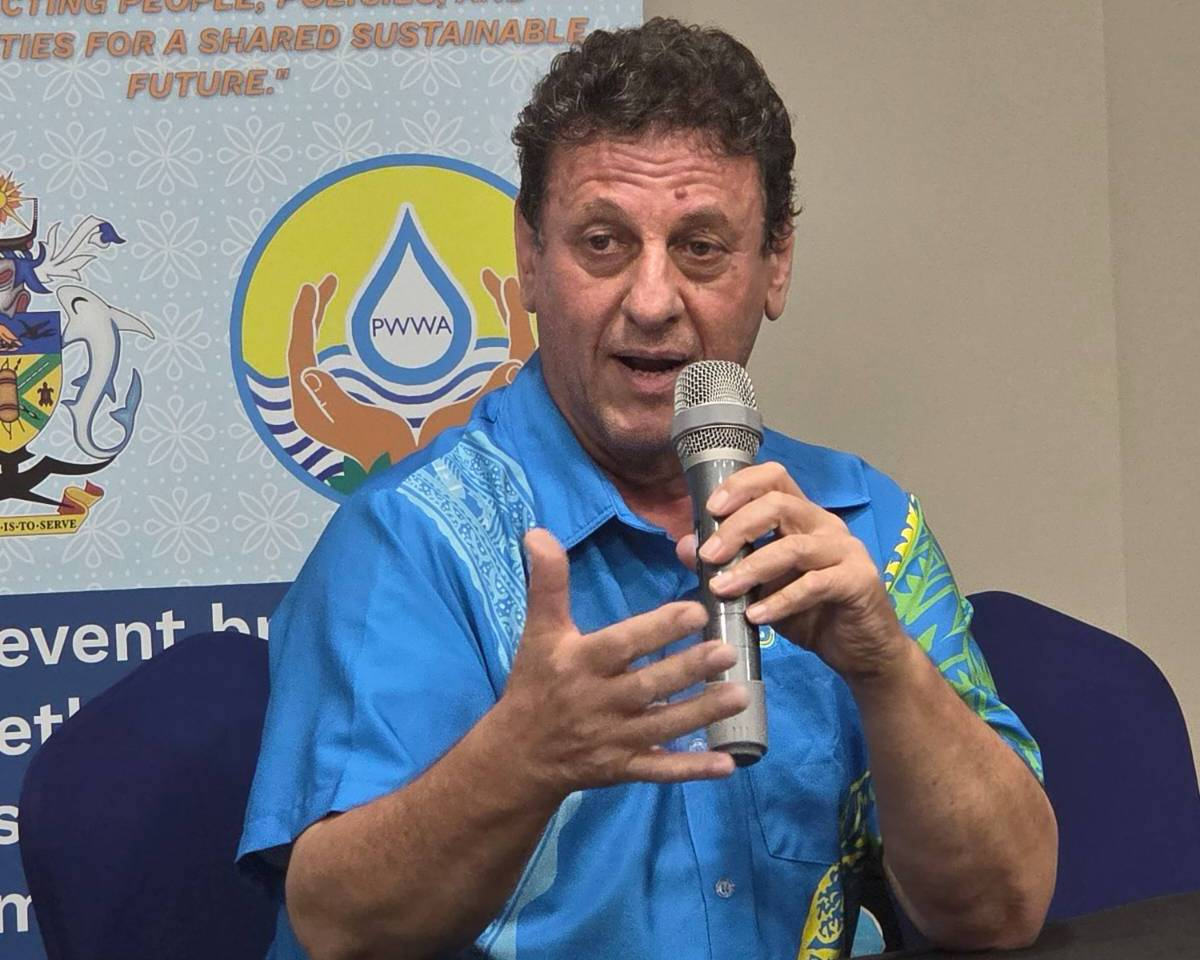
by Georgina Maka’a
Solomon Water has revealed it is losing an estimated SBD$185 million in potential revenue each year, due to its aging and leaking infrastructure across Honiara.
Chief Executive Officer (CEO) Carmine Piantedosi disclosed the staggering figure during his presentation at the 16th Pacific Water Summit in Honiara this week. This is one of the toughest financial challenges that the state-owned water utility is facing in decades.
According to Piantedosi, 60% of Solomon Water’s supply is classified as non-revenue water—water that is produced but never reaches consumers due to leaks, burst pipes, and other losses.
“This is money Solomon Water desperately needs,” the CEO said.
“While we have a clear path to achieve our vision for reliable water services, our journey has challenges,” Piantedosi added.
He noted that in 2024, Solomon Water produced 13.5 gigaliters (GL) of water but managed to deliver only 5.8 GL to consumers, resulting in significant financial losses.
“This gap not only affects our revenue but also impacts our ability to invest in infrastructure improvements.”
Access to clean water remains a pressing issue in the Solomon Islands, where only 25% of the population has reliable access to piped water.
According to Piantedosi, another 54% receive improved water from alternative sources, while only 10% benefit from sanitation systems, with even fewer in urban areas.
“We recognize that the demand for water services is increasing due to urbanization and population growth, which complicates our efforts to provide efficient water management and conservation,” he stated.
Piantedosi pointed out that unpredictable weather patterns, including floods and droughts, pose additional challenges to water availability.
“Our aging infrastructure, with many pipes and treatment plants in need of replacement, leads to leaks and disruptions in service.
“We must adopt adaptive strategies to mitigate these risks,” he explained.
One of the critical issues raised by Piantedosi was the need for Solomon Water to reassess its tariffs, fees, and charges to ensure long-term financial sustainability.
“Providing safe and clean water is not free,” he noted.
“There are real costs associated with maintaining and upgrading our systems.”
Piantedosi added for a better understanding of these costs, Solomon Water plans to invest in customer education and awareness campaigns.
“Many people are willing to pay significantly more for bottled water than for water from the tap.
“It’s crucial that our customers understand the value of the services we provide.”
In response to the challenges faced, Piantedosi announced that Solomon Water is integrating innovative design solutions into its water treatment plants and constructing new storage facilities.
“These efforts are aimed at reducing the impact of climate risks, such as flooding and heavy rainfall, on our operations,” he explained.
Furthermore, he revealed Solomon Water is actively seeking funding for infrastructure upgrades and is exploring the implementation of smart technologies, including remote monitoring and data analytics.
“By adopting these technologies, we can enhance our operational efficiency and service delivery.”
Piantedosi also added that the importance of incorporating renewable energy sources to reduce operational costs.
“We are committed to building our human capacity and capability to meet future challenges.
“As Solomon Water works to navigate the complexities of water management in the Solomon Islands, it remains committed to engaging with its customers and enhancing service delivery.
“We must all work together to ensure that safe water is available for everyone in our nation.
“By increasing awareness and collaborating with the community, we can build a stronger, healthier future for all.”
Solomon Water is the government agency set up to provide and manage water supply services in Honiara.
It also manages water supply services in the provincial towns of Noro, Tulagi and Auki.
